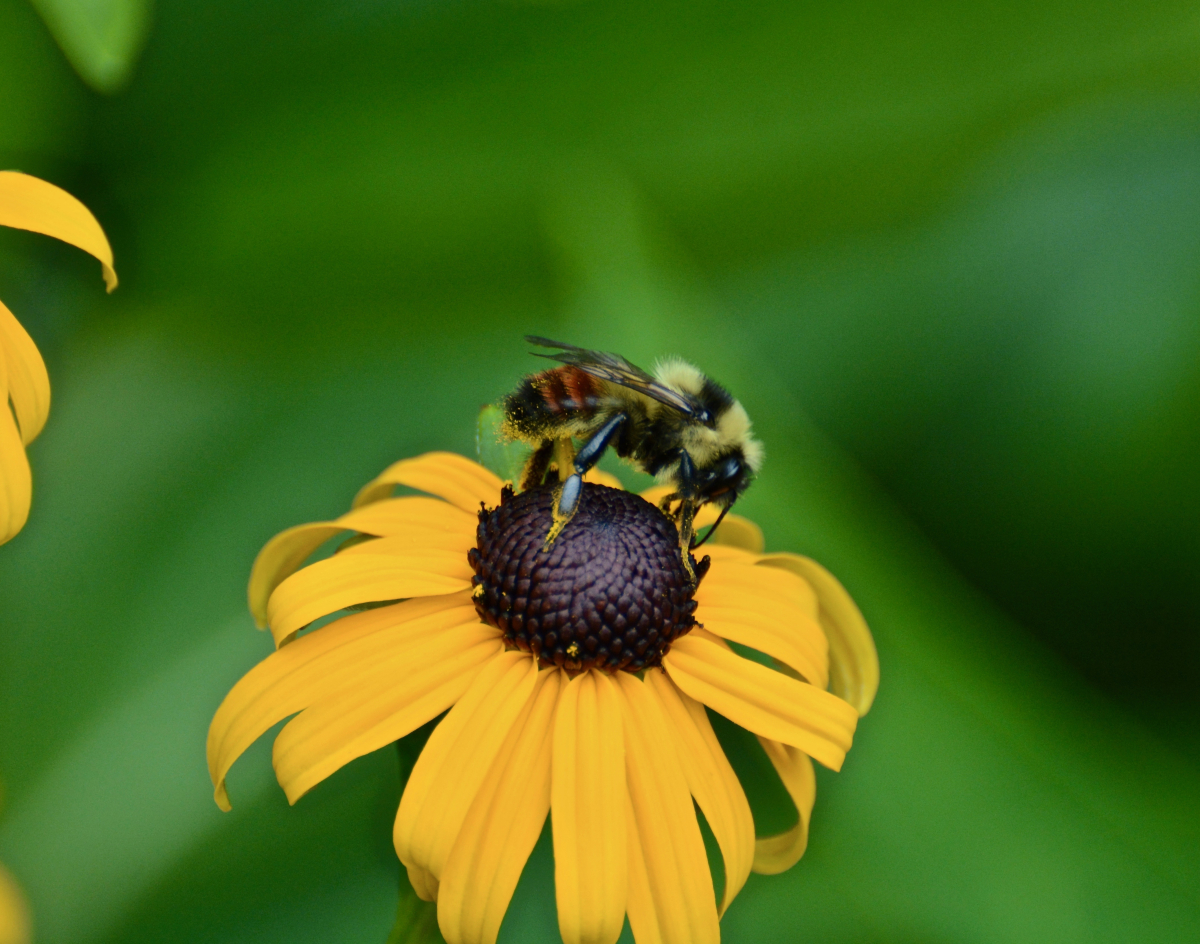Support strong Canadian climate journalism for 2025
An international consortium of scientists is calling for more countries to get on board with restricting certain pesticides after two regions have taken strong action.
Marinduque, a province of the Philippines, and France have banned neonicotinoids, a decision welcomed by the international Task Force for Systemic Pesticides because of the “unacceptable risk” they pose to biodiversity.
The collective, which advances scientific support for fact-based policy making, met in Paris this week to “discuss evidence that neonicotinoids pose an unacceptable risk to bees, butterflies and other biodiversity,” within weeks of France and the Province of Marinduque posing far-reaching prohibitions on their use.
“We need all governments, from the smallest to the most powerful, to restrict the use of neonicotinoids, which are used in agriculture worldwide,” Jean Marc Bonmatin, an environmental chemist with the French government and expert on neonicotinoids, said in a Thursday news release.
Ban hailed as a 'democratic success'
Neonicotinoids – or neonics – are neurotoxic and water soluble insecticides that are widely used to treat crops. The products work by systemically infiltrating the plant, permeating its tissues and leaving its components, like pollen, to be distributed throughout the surrounding environment. They don’t distinguish what comes in their path, so targeted pests as well as vital pollinators are susceptible to ingesting them.
The pesticides have been shown to significantly harm creatures like bees, butterflies and birds.
“Banning neonicotinoids by law was a democratic success,” said Delphine Batho, an member of the French National Assembly for the District of Deux-Sèvres and France’s former minister of ecology, sustainable development and energy, in a statement from the Task Force for Systemic Pesticides.
“While three neonics will similarly be outlawed in all 28 countries of the European Union, the French law goes further because it targets all five neonicotinoid pesticides that were used in France. The French Parliament has also voted recently to expand the ban to restrict all new pesticides that have the same mode of action as neonicotinoids.”
Romulo Bacorro, vice governor of Marinduque, is at the French National Assembly this week, meeting with scientists and delegates to engage on the global need to restrict neonics and advance safer alternatives. The island province enacted its ban in August.
“In Marinduque – the butterfly centre of the world – raising butterflies is a major source of livelihood for local communities. We may be small, but we’re joining France in banning neonics to protect biodiversity, food security and the livelihoods of our people,” he said in the statement.

Calls for Canada to do more
In August, the pesticide management wing of Health Canada announced a proposal to ban two of three major neonics – thiamethoxam and clothianidin – following the results of a risk assessment on their effects on aquatic insects. The agency opened a 90-day consultation window that would set off a three to five-year wind-down, a move heralded as an important first step.
But not everyone thinks it goes far enough.
Jeremy Kerr, an ecologist at the University of Ottawa and member of the pesticide task force, has welcomed the Pest Management Regulatory Agency’s “heartening” step, but recognizes that more can be done, faster, given that the same scientific evidence of environmental harm is common worldwide.
The French and Marinduque bans, he said, may “(set) a new bar” for evidence-based and swift action.
“The European Union of course, plus Switzerland have enacted a relatively strong ban, but using the same evidence, the French government and the Philipine province of Marinduque have concluded that more can be done and more should be done. This seems like a good moment for us, that they're establishing a new standard,” Kerr told National Observer.
Nearly all of Ontario’s corn seed is treated with neonic products.
In 2016, Ecojustice – an organization that fights for environmental public interest cases – filed a lawsuit against Health Canada's Pest Management Regulatory Agency on the grounds that the agency doesn’t properly study the insecticides before registering them for commercial use. The law group has asked “the court to rule that the PMRA’s ‘approve first, study the science later’ approach is unlawful and that the practice of granting approvals without science cannot continue.”
The case, filed on behalf of several environmental groups, will be heard this fall.
“We have inherited an extremely biodiverse world from our parents and I think it is incumbent on us to pass on that same world undiminished to our children,” said Kerr.
“From my point of view, there's an important ethical obligation here. But there are also practical considerations that we really must not ignore. And among them is the fact that one out of three bites of food that we take relies directly or indirectly on the action of pollinators, so any sort of impact on pollinators is ultimately also an impact on ourselves, and we need to be taking that kind of effect very seriously.”






Comments
Yes - Canada straggles, over many thing - it is particularly lax in the regulations of chemical and pharmaceuticals - as the victims of Thalidomide will attest. There is certainly enough scientific talent in Canada to meet or exceed world standards for oversight and testing. Why are we so shy about protecting our health and our environments? Are we still labouring under the delusion that Canada is special and immune to evils now having global reach?
Why stretch the ban over xxx years. The damage has been done, the bees have just about disappeared. The ban must take effect now. Do we stretch it out so that the Chemical Conglomerates may liquidate all of their inventory of the deadly material? Yield first to Big Oil, Second to Pharma and now to Chemical lobby. Great government... and I voted for it!